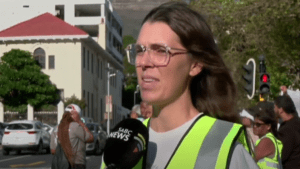The City of Cape Town’s new water programme will look into approaches to ensure water security post-drought.
The water supply demands are crucial to cater for the City’s rapid population growth. Authorities say this programme includes diverse initiatives aimed at adding 300 million litres of water per day by 2030.
The new water programme aims to successfully implement long-term solutions to curb water shortages in the City. Authorities have used the drought that the City endured between 2015 and 2018 as a steep learning curve.
Mayco Member for Water and Sanitation, Zahid Badroodien, says the diversified initiatives include groundwater extraction through aquifers, water re-use, infrastructure maintenance and long-term plans for desalination.
He says if implemented successfully, at least 3-million litres of water can be generated.
“It looks at obviously our surface water, which is the dams as they currently exist. And then it also looks at our aquifers, which we’re very lucky to have in our city. And so looking at how we can tap into them more efficiently to augment our portable water sources. Then we look at water reuse, which is our foreign new water scheme, which looks at treated effluent, essentially being ultra purified and fed back then into the drinking water system, a standard water source. Then obviously we’ve got desalination, which is a critical component which the city is currently under way in terms of its feasibility studies.”
Badroodien says population growth and the impact of climate change are risks to water security in a city prone to drought.
“And so, we know that the weather patterns are extremely unpredictable. We know droughts are likely to come on the way with the El Nino weather systems that we’re experiencing. And all of the investments that were making now is necessary to future -proof us for a growing city. We absolutely don’t want to experience what other cities are experiencing in terms of water shedding and turning water off and not having residents have water when they open up the taps, not in the City of Cape Town.”
Desalination is an expensive water solution globally.
Badroodien says the expenditure is necessary to see the production of reliable and safe water for residents.
He says cheaper alternatives are also being looked into.
“And that’s not wrong at all, water produced by desalination is very expensive. It is an energy demanding process that has a number of steps that all ultimately feed into what the final cost of that water is. That’s also sort of why we’re deriving other water sources like our water reuse program, which produces much, much cheaper water than what desalination produces. And I wouldn’t be surprised if the costing back then was a billion rand. Our current estimation for the program should it come to an end is close to R5 billion for desalinization, which we’ll have to fund over a few years.”
Feasibility studies for a permanent desalination plant is currently under way.
Authorities aim for construction to kick off within the next four years.






